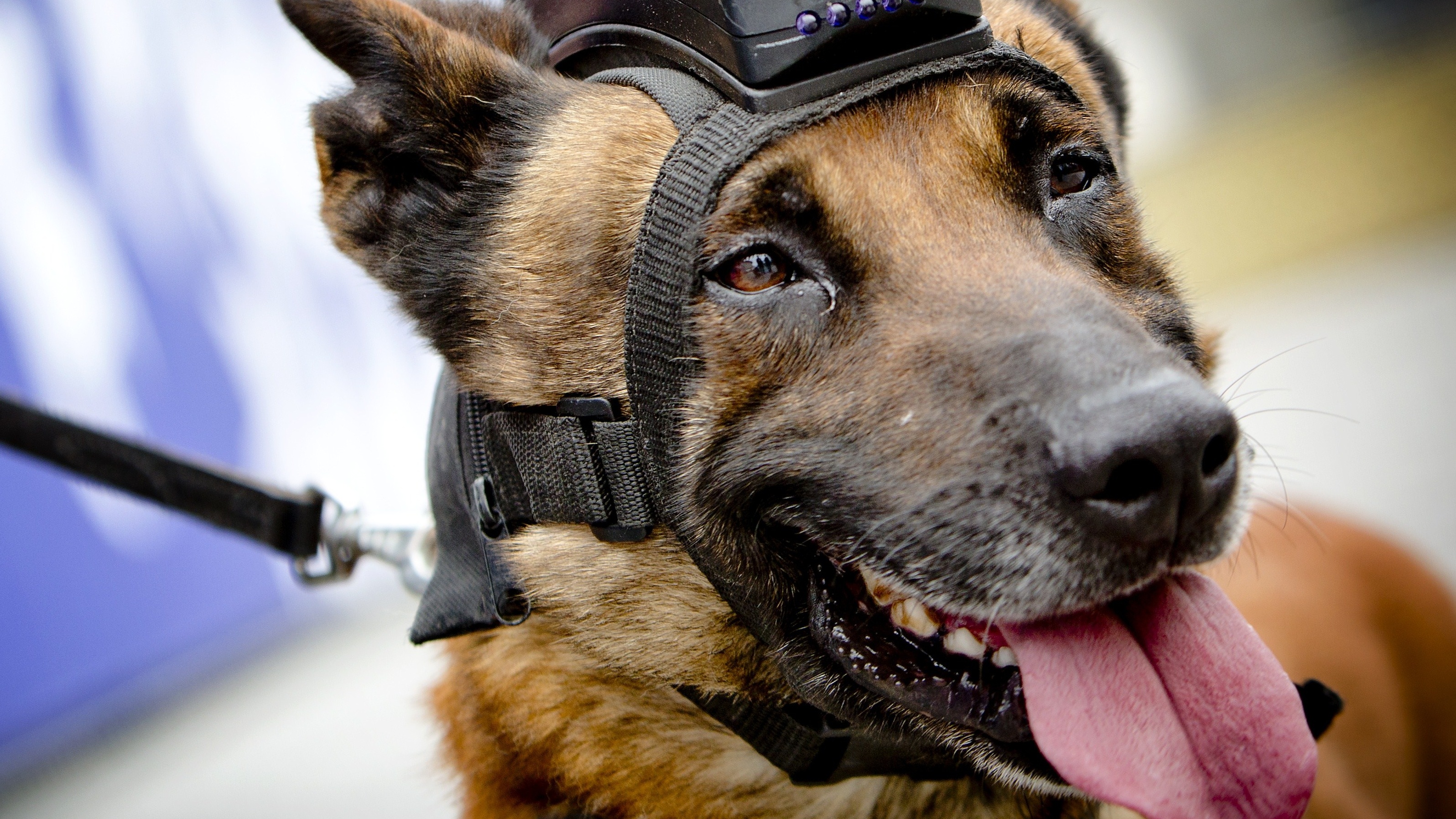Dubai Airport deploys sniffer dogs to detect coronavirus carriers
Passengers arriving in UAE are first in world to undergo ‘Covid K9’ checks

A free daily email with the biggest news stories of the day – and the best features from TheWeek.com
You are now subscribed
Your newsletter sign-up was successful
Specially trained dogs are attempting to sniff out coronavirus infections among travellers arriving at Dubai Airport, in a world first.
K9 sniffer dogs have been stationed at Dubai International Airport and other airports across the United Arab Emirates (UAE), where they are “working to track possible infections using swabs gathered from arriving passengers”, Abu Dhabi-based newspaper The National reports.
According to Major Salah Al Mazrooei of Dubai Police, the samples are taken from passengers’ armpits for the tests, being conducted “in collaboration with partners from Dubai Health Authority”, and “the results are out in less than one minute”.
The Week
Escape your echo chamber. Get the facts behind the news, plus analysis from multiple perspectives.

Sign up for The Week's Free Newsletters
From our morning news briefing to a weekly Good News Newsletter, get the best of The Week delivered directly to your inbox.
From our morning news briefing to a weekly Good News Newsletter, get the best of The Week delivered directly to your inbox.

“Travellers who have a fear of dogs do not need to worry as there is no direct contact between dogs and passengers,” adds The National. “Instead, the animals are exposed to samples collected from travellers in an isolated room.”
Debate over whether dogs can sniff out the virus has been raging for months. But “the UAE has chosen to believe that sniffer dogs are efficient in detecting Covid-19 in the passengers”, says The Times of India.
In a statement, Dubai’s Ministry of Interior said: “Data and studies showed that detection of presumed Covid-19 cases achieved approximately 92% in overall accuracy.
“Figures indicate that dogs can quickly detect infected cases, help protect key sites, effectively deal with huge crowds and secure large events, airports, etc.”
A free daily email with the biggest news stories of the day – and the best features from TheWeek.com
Although it may sound barking mad, “this method has been used to detect several other diseases that can affect body odor such as cancer and malaria”, The Sun reports.
A recent study revealed that researchers in Germany have trained army sniffer dogs to distinguish between samples of fluids from patients infected with Covid and healthy donors.
“The animals were able to positively detect SARS-CoV-2 infected secretions with an 83% success rate, and control secretions at a rate of 96%,” according to Deutsche Welle.
Joe Evans is the world news editor at TheWeek.co.uk. He joined the team in 2019 and held roles including deputy news editor and acting news editor before moving into his current position in early 2021. He is a regular panellist on The Week Unwrapped podcast, discussing politics and foreign affairs.
Before joining The Week, he worked as a freelance journalist covering the UK and Ireland for German newspapers and magazines. A series of features on Brexit and the Irish border got him nominated for the Hostwriter Prize in 2019. Prior to settling down in London, he lived and worked in Cambodia, where he ran communications for a non-governmental organisation and worked as a journalist covering Southeast Asia. He has a master’s degree in journalism from City, University of London, and before that studied English Literature at the University of Manchester.
-
 The world’s most romantic hotels
The world’s most romantic hotelsThe Week Recommends Treetop hideaways, secluded villas and a woodland cabin – perfect settings for Valentine’s Day
-
 Democrats push for ICE accountability
Democrats push for ICE accountabilityFeature U.S. citizens shot and violently detained by immigration agents testify at Capitol Hill hearing
-
 The price of sporting glory
The price of sporting gloryFeature The Milan-Cortina Winter Olympics kicked off this week. Will Italy regret playing host?
-
 Epstein files topple law CEO, roil UK government
Epstein files topple law CEO, roil UK governmentSpeed Read Peter Mandelson, Britain’s former ambassador to the US, is caught up in the scandal
-
 Iran and US prepare to meet after skirmishes
Iran and US prepare to meet after skirmishesSpeed Read The incident comes amid heightened tensions in the Middle East
-
 Israel retrieves final hostage’s body from Gaza
Israel retrieves final hostage’s body from GazaSpeed Read The 24-year-old police officer was killed during the initial Hamas attack
-
 China’s Xi targets top general in growing purge
China’s Xi targets top general in growing purgeSpeed Read Zhang Youxia is being investigated over ‘grave violations’ of the law
-
 Panama and Canada are negotiating over a crucial copper mine
Panama and Canada are negotiating over a crucial copper mineIn the Spotlight Panama is set to make a final decision on the mine this summer
-
 Why Greenland’s natural resources are nearly impossible to mine
Why Greenland’s natural resources are nearly impossible to mineThe Explainer The country’s natural landscape makes the task extremely difficult
-
 Iran cuts internet as protests escalate
Iran cuts internet as protests escalateSpeed Reada Government buildings across the country have been set on fire
-
 US nabs ‘shadow’ tanker claimed by Russia
US nabs ‘shadow’ tanker claimed by RussiaSpeed Read The ship was one of two vessels seized by the US military